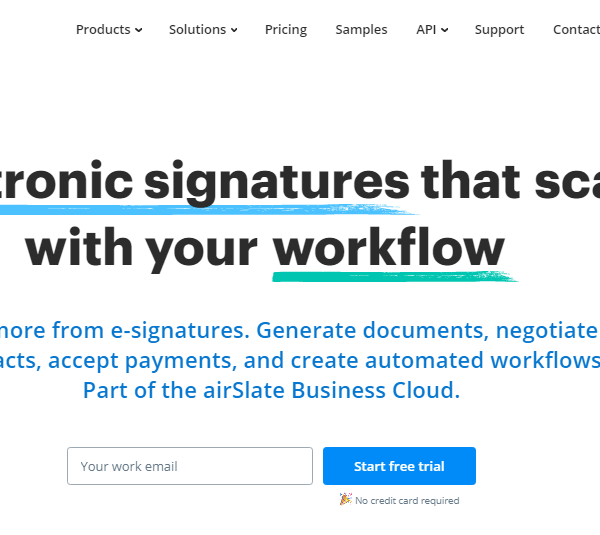Are you planning to scale up your business? If so, then you should consider switching to a virtual phone system. However, you might get confused because of the different offers from various service providers that seem to be fit, all of them, for your business.
There’s no need to be overwhelmed. This article will explain the different types of phone systems. From there, you can decide what the best fit for your business is.
Visit Freeje‘s website to know more about the great benefits of having a virtual phone number.
A virtual phone system is far less expensive than a traditional phone system. Traditional phone services are still widely used although it is undeniable that they are expensive in terms of maintenance and don’t provide the same features a virtual phone system can offer.
Unified Communication System
With today’s trend in the telecommunication system, staying in the traditional way of communication would certainly leave you outdated. With the emergence of state-of-the-art technology, a unified communication system was born and significantly connects with customers in ways that traditional phones cannot offer. Video calls, video conferencing, IVR, are just a few to mention when it comes to features a virtual phone system has to offer.
Without further ado, let’s discuss the different types of virtual phone system and frequently asked questions on voip and business phone system and how they can help you boost your business to a different and exciting level.
Google Voice Number
Google Voice number is a virtual phone number with voicemail. It is easy to use as well as its voicemail features. However, if you are just starting up your business, this kind of service would not be completely helpful since it lacks important features that modern-day businesses should have.
You can’t get a toll-free number using Google Voice, which can let your customers call you without incurring long-distance charges. It would be difficult to build a business presence without the proper features in your phone system. Remember that establishing a reliable and credible presence earns the trust of your customers.
VoIP System
VoIP System is advanced telecommunication technology. It is a cloud-based phone system and simple to manage online. But having the VoIP phone system also includes setting up physical equipment or hardware like IP phones and computer-based softphones. These devices solely depend on your Internet connection. Thus, you should have a reliable broadband Internet service as well. Although managing incoming and outgoing calls are easy online, some technical know-how is needed to set up special servers in this type of business phone system.
Although most modern businesses have this type of telecommunication service, it usually requires technical experience and significant investment especially if you are just starting up.
Traditional Business Phone Service
Traditional business phone service has good call qualities. However, it requires you to maintain the system in an on-location PBX. Another downside about this kind of telecommunication system is that it is already considered an outdated phone technology. It means that valuable features that a cloud-based phone system can offer for your business are not possible with a traditional phone system.
IVR Phone System
Interactive Voice Response (IVR) is an advanced phone technology that allows your incoming callers to navigate a preset phone system through configurable voice menus without human intervention.
This means that with this type of phone system, your callers can interact with your business via the telephone keypad. IVR then routes the calls to the appropriate recipients in your company.
This is a very helpful feature and is proven to be responsive 24/7. However, you should also consider the cost of setting up this kind of phone system and scale your business if it needs one.
Cloud-Hosted PBX System
A cloud-hosted Private Branch Exchange (PBX) system is considered to be the best type of virtual phone solution for business nowadays. It is a good thing to discuss some of the advanced features of this type of phone system so you can decide whether this could be of help to your business.
- It has a low-cost feature compared to other phone systems such as the traditional type.
- It is smartly and strategically designed to provide you with wider connections all over the world by simply using your preferred communication devices.
- It is a reliable phone system since it hosted “in the cloud”. Your service provider is the one who is taking care of and managing all the repairs of hardware or equipment.
However, there’s a couple of disadvantages a cloud-hosted PBX system has. And you must be fully aware of them so you can assess if this kind of phone system is worthy of your business.
- Call quality is one of the disadvantages of this type of telecommunication system. If you have a reliable source of Internet connection, then this one is not to be considered a problem or challenge to you. But if you have a slow or intermittent Internet connection, then that is definitely going to be a big challenge for your business. Remember that this type of phone system is hosted in the cloud and strongly depends on a strong Internet connection
- Another thing that is very important to put into consideration is security. We cannot deny that nowadays, there are cases of security breaches online. And even though virtual PBX service providers encrypt all your calls, there is still a possibility of a reduced level when it comes to security.
On-Premise PBX
On-premise PBX is quite similar to the traditional PBX system since it resides in a specific location such as your computer room or phone closet. Therefore, it is deployed on servers that belong to the business itself and is entirely managed by them.
On-premise PBX is more preferred for large organizations or businesses since they are the ones who are capable of running and managing the phone system.
Of course, the big disadvantage of this type of phone system is that you need to install hardware and expensive equipment on your location. Unlike the hosted or cloud-based PBX, an on-premises PBX needs an IT expert to manage and troubleshoot the system in case of failure.
In this case, you should consider your budget before considering the on-premise PBX. As said, large infrastructures have the resources to make it possible.
Final Words
Communication is a very crucial aspect in every business – small, medium, or large enterprises. That is why it is better to have a full assessment and consideration of all the factors, especially your budget before deciding to get a phone system.
If your business has sufficient infrastructure and resources already, then scaling up to a more expensive yet dependable type of phone system might be a good choice.
But if you consider scaling back the budget spent on managing such phone systems, you might consider getting the cloud-hosted PBX service. You can check Hottelecom for different types of telecommunication systems that best suit your business and resources.
There are different driving factors to be considered before making a decision. But it is obvious that business owners like you want to enhance their business image and practice in a long-term commitment, so integrating your communication system should not be overlooked, rather it should be highly prioritized. After all, you want to stay connected with your clients anytime, whether you’re in the office or outside, or anywhere you want to go.
Image Credits: Negative Space, namair





Like this article? Share with your friends!